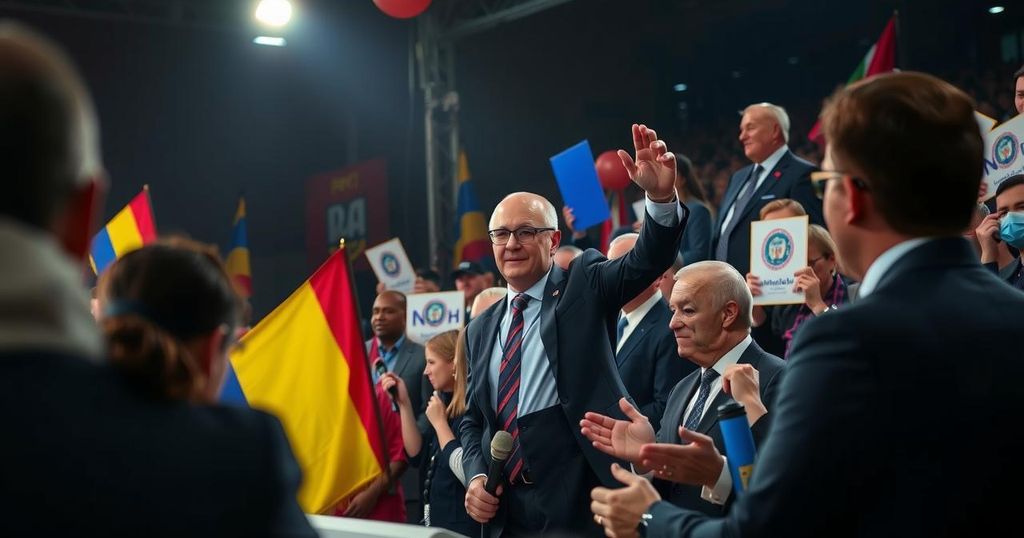Romania’s Presidential Election: Nationalist and Leftist Candidates Compete in Key Vote

Romanians are voting in a presidential election that could lead to a runoff between far-right nationalist George Simion and incumbent leftist prime minister Marcel Ciolacu. Thirteen candidates are competing, and the election comes against the backdrop of parliamentary elections in December. Polling reports indicate a notable voter turnout, with indications of significant influence from the diaspora and young voters in this politically charged context.
On Sunday, Romanians participated in the first round of a presidential election featuring thirteen candidates, with expectations that a runoff will occur on December 8. Polling stations, which opened at 7 am local time, reported a turnout of approximately 45% of eligible voters by 6 pm. The election could set the stage for a contest between George Simion, the leader of the far-right Alliance for the Unity of Romanians (AUR), and the incumbent leftist prime minister, Marcel Ciolacu, who is backed by the Social Democratic Party (PSD).
The presidency in Romania holds significant influence over critical areas such as national security and foreign policy, with a term length of five years. Additionally, parliamentary elections are scheduled for December 1, which will impact the political landscape further. Simion, a controversial figure and vocal supporter of Donald Trump, has expressed aspirations of instilling national pride among Romanians and promoting Romanian interests.
Young voters, such as 20-year-old architecture student Ecaterina Nawadia, have noted their hopes for increased participation and the necessity of impactful leadership, indicating a generational divide in perceptions of the candidates. Political analysts suggest that the diaspora’s involvement in the election could play a crucial role in determining the runoff candidates amid rising dissatisfaction with mainstream options.
Ciolacu outlined his campaign focus on encouraging Romanians to remain in or return to the country, emphasizing economic stability and improved quality of life as vital goals. Other notable candidates in the election include Elena Lasconi of the Save Romania Union party and Mircea Geoană, a former NATO deputy secretary general. The political climate is complex, with various factions vying for influence amid economic challenges and societal expectations regarding governance.
The article reports on the ongoing presidential election in Romania, where voters are faced with a choice among thirteen candidates, reflecting a politically charged environment. The potential for a runoff between a far-right nationalist and a leftist incumbent illustrates Romania’s political spectrum, particularly in light of the rising populist sentiments across Europe. This election is occurring alongside parliamentary elections, further influencing the country’s future governance. Younger voters and significant economic challenges contribute to the urgency and importance of voter turnout and candidate selection in this election.
In summary, the first round of the Romanian presidential election reveals a polarized political landscape, with the potential for a nationalistic shift if George Simion advances to the runoff against Marcel Ciolacu. The turnout among young voters and the influence of Romanians living abroad may significantly shape the electoral outcome. As Romania grapples with economic turmoil, the decisions made in these elections have the potential to determine the country’s political trajectory for years to come.
Original Source: www.theguardian.com








